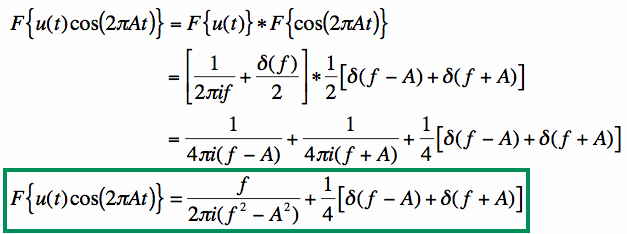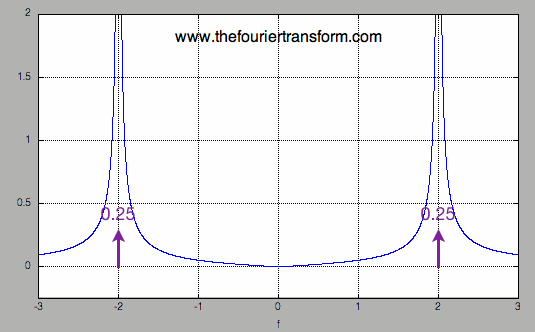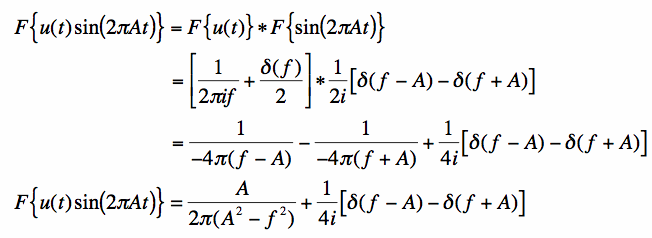|
The Fourier Transform can be found by noting the Fourier Transforms of the unit step and the cosine:
|  |
[Equation 2] |
|  |
[Equation 3] |
Using Equations [2] and [3] along with the
modulation property of Fourier Transforms, we obtain the result:
|  |
[Eq4] |
The plot of the magnitude of the Fourier Transform of Equation [1] is given in Figure 2. Note that the vertical
arrows represent dirac-delta functions.

Figure 2. Plot of Absolute Value of Fourier Transform of Right-Sided Cosine Function.
The Right-Sided Sine Function
The right-sided Sine function can be obtained in the same way. This function is mathematically written in Equation [5]:
|  |
[Equation 5] |
The plot of the right-sided Sine Function is given in Figure 3 for A=2:

Figure 3. Plot of Step Function times the Sine Function for A=2.
Recall the Fourier Transform of the Sine Function:
|  |
[Equation 6] |
And we can procede exactly as before to obtain the final result:
|  |
[Eq7] |
Equation 7 gives the Fourier Transform of the right-sided sine function. The absolute value of this function
is plotted in Figure 4:

Figure 4. Plot of the Absolute Value of The Right-Sided Sine Function.
Next: Complex Gaussian
Previous: Truncated Cosine
Table of Fourier Transform Pairs
The Fourier Transform (Home)
| 









